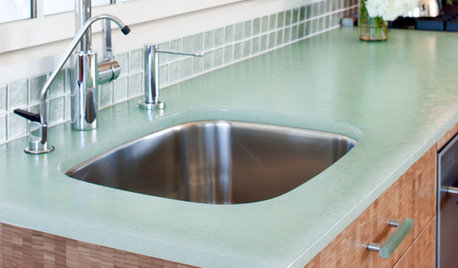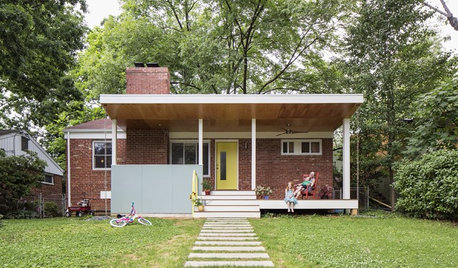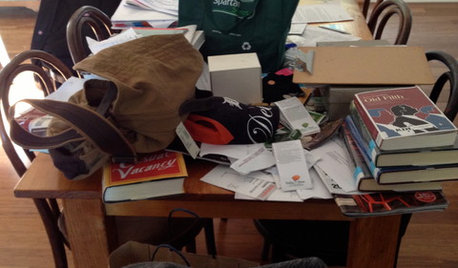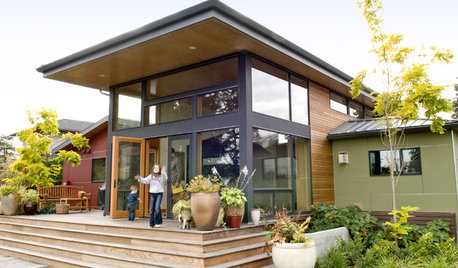Trying to figure out the financial viability...
longday1
14 years ago
Related Stories

DECORATING GUIDESFigured Velvet Piles On a Luxurious Look
When is it enviable to be a little loopy? When the loops comprise a gorgeously textured fabric like this one
Full Story
MATERIALSWant a Clear Decorating Conscience? Try Recycled Glass
Choose recycled glass for counters, backsplashes, accessories and more — this material is as durable as it is ecofriendly
Full Story
WALL TREATMENTSTempted to Try Wallpaper? 10 Tips for Finding the Right Pattern
Before you lay down a lot of cash, sit down with this advice for getting a wallpaper you’ll love for years
Full Story
LIFEWe Can Work It Out: Living (and Cleaning) Together
Run a household without fussing and fighting with these ideas for how to work together on household chores
Full Story
FURNITUREHolding Out for Quality
Cheap furniture has its place, but more shoppers are waiting to invest for the long haul
Full Story
DECORATING GUIDESHow to Decorate When You're Starting Out or Starting Over
No need to feel overwhelmed. Our step-by-step decorating guide can help you put together a home look you'll love
Full Story
FEEL-GOOD HOMEWhat Really Makes Us Happy at Home? Find Out From a New Houzz Survey
Great design has a powerful impact on our happiness in our homes. So do good cooking smells, family conversations and, yes, big-screen TVs
Full Story
DECORATING GUIDESDecorating 101: How to Start a Decorating Project
Before you grab that first paint chip, figure out your needs, your decorating style and what to get rid of
Full Story
LIFEAnatomy of a Family-Size Mess
Study your home’s dumping grounds to figure out what organizational systems will work — then let yourself experiment
Full Story
SELLING YOUR HOUSE10 Ways to Boost Your Home's Resale Value
Figure out which renovations will pay off, and you'll have more money in your pocket when that 'Sold' sign is hung
Full Story





keltink
herbalbetty
Related Professionals
Essex Landscape Architects & Landscape Designers · Middle Island Landscape Architects & Landscape Designers · Vernon Hills Landscape Architects & Landscape Designers · Middletown Landscape Contractors · Arlington Landscape Contractors · Marlborough Landscape Contractors · Sun City Center Landscape Contractors · Tavares Landscape Contractors · Tewksbury Landscape Contractors · Wallingford Landscape Contractors · Wallingford Landscape Contractors · New Carrollton Landscape Contractors · Clearfield Landscape Contractors · Half Moon Bay Solar Energy Systems · Randolph Solar Energy Systemsocean512beach
veggierosalie
hanselmanfarms
User
hanselmanfarms